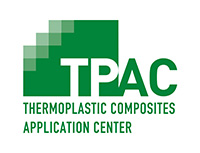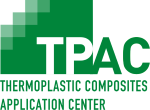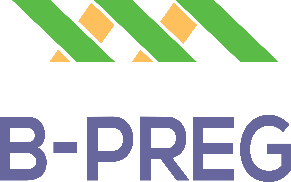3D Flax
Summary
Technical textiles are the key reinforcing materials for polymeric composites and can be utilized in different structures (nonwoven, woven fabrics, braidings and unidirectional). Considering climate change and resource depletion; natural fiber reinforced composites (NFCs) based on varied textile structures are highlighted as one of the most promising circular materials. Trends towards digitalization, customization, less material and minimized waste highlight additive manufacturing as the most promising future technology.
In this project a groundbreaking 3D depositing technology for continuous fibre reinforced thermoplastic composites is deployed with textile based biocomposites. During the last decade, the ThermoPlastic composites Application Centre (TPAC) has specialised in depositing UD composite materials (tape) using innovative 3D printing technologies. TPAC has developed a novel deposition head making it possible to manufacture any geometry with UD tapes of strong continuous fibers in any (3D) direction, 100 times more efficient in production rate and cheaper in investment cost compared to currently used technologies.
B-PREG has revolutionized the manufacturing method of natural fiber reinforced thermoplastic UD tapes from a two-step discrete process through a novel one-step continuous process via herstrong textile background and patent-pending technology. BPREG’s technology overcomes the obstacles in manufacturing affordable, scalable and recyclable high-performance textile based biocomposites.
By combining the depositing technology and the unique biobased material the regular plastics conversion industry (a.o. automotive) is enabled to adopt sustainable continuous fibre reinforcements in their products at extremely competitive low cost.
The TPAC will transfer her technology and related knowledge towards BPREG. BPREG will provide 3D printed tailored products and service to her customers. Together they will bring a revolutionary step to the polymer processing industry, textile based composites and biobased products. Products made with e.g. injection moulding, rotational moulding or thermoforming can now be reinforced locally for ultimate performance with less material and minimum waste. This makes products extremely resource efficient and incurs huge CO2 savings, particularly in green mobility applications.
Project partners
BPreg
Duration
1 year, Start in September 2021
Funding
ELIIT Project is funded by COSME Programme of the European Union for the competitiveness of Enterprises and Small and Medium-Sized Enterprises (SMEs).


